The training program 6B04103 - "Business and Finance" is designed to train specialists in the field of economic sciences as part of the bachelor's program in economics.
The purpose of the educational program is to train highly qualified and in-demand specialists in the financial market who have financial, accounting, analytical, economic and managerial knowledge, who are able to use modern technologies to solve professional problems, who possess professional competencies in the financial sector and in various sectors of the economy of Kazakhstan.
The educational program is designed in such a way that it can be adapted to the individual needs of each individual student within the framework of educational standards.
Features of the educational program:
- The use of modern educational technologies, including digital ones.
- The opportunity to practice in the structures of the financial and corporate regional market.
- Implementation of academic mobility.
- Continuous cycle of study: Bachelor's degree-Master's degree
In order to develop additional competencies complementary to students chosen profile, Minor programs are implemented, which consist of a track of thematically related elective disciplines.
Available Minors in the educational program:

Translator

Philologist

Fundamentals of law

The tour guide

Human health

The basics of mediation and positive personal thinking
Develop basic professional competencies among future specialists in the field of economics and business;
Ensuring connection of the learning process with science development; organization of practice-oriented training;
Creation of prerequisites for independent research and analytical activities of students;
Promotion of skills working with specialized information for further application in professional activities, systematizing the information received;
Instilling skills in working with scientific, technical and economic information, to creatively use domestic and foreign experience in professional activities, to systematize the information received;
Formation and development of social and personal qualities: determination, industriousness, responsibility, citizenship, tolerance, adherence to ethical standards, the ability to work in a team;
Assistance to graduates of the training program in employment by organizing professional practice.
Key competencies in the training programThe ability to correctly formulate their thoughts in Kazakh, Russian and foreign languages, oral and written language skills;
The ability to demonstrate knowledge, skills, skills and competencies in the field of general education disciplines;
The ability to conduct research and project activities, including problem analysis, setting goals and objectives, identifying the object and subject of research, choosing the method and methods of research, working with information sources, owning academic writing, demonstrating a culture of academic integrity;
Ability to work in a team, interact with a team, jointly solve production tasks, possess business communication skills;
The ability to understand the role and importance of information and information technologies in the development of modern society, to master the methods of working with information, modern information networks, to be able to search, store, process and analyze information from various sources and databases, to apply information technology in solving professional tasks;
The ability to think creatively and critically, analyze, synthesize information when solving specific tasks, and defend your point of view in a reasoned manner;
The ability to realize the social significance of his future profession, has motivation for personal development, the implementation of professional activities;
Ability to assess the levels of financial risks, knowledge of financial risk management methods and tools for implementing financial risk management solutions in banks and the real sector of the economy, the ability to understand the need and importance of a strategic management system and planning for the development of a new financial product;
Ability to develop basic financial management methods for asset valuation, working capital management, decision-making on financing, formation of dividend policy and capital structure, ability to use basic financial management methods for asset valuation, working capital management, decision-making on financing, formation of dividend policy and capital structure of the company;
The ability to form and consolidate financial statements of companies and groups of companies in accordance with international financial reporting standards, the ability to predict, evaluate and adequately respond to factors affecting business processes;
Ability to analyze data and information flows in information systems, ability to use information technologies, software in the field of professional activity;
The ability to analyze the initial data necessary for calculating economic and socio-economic indicators characterizing the activities of companies, analyze the results of solving problems for the development and adoption of rational management decisions, analyze the main financial documents;
The ability to use automated banking information systems and the use of software that allows you to perform settlement and cash services to customers, calculate taxes;
The ability to use tax legislation to conduct taxpayers' calculations and reflect them on accounts, the ability to correctly interpret the tax policy of the state and reflect it in the practical activities of the organization, manage and optimize the tax expenses of the enterprise, knowledge of the basics of the legal system and legislation of the Republic of Kazakhstan, the use of regulatory and legal documents;
The ability to assess the state of information systems and databases, the ability to analyze data flows and information in information systems, process data using MSExcel, Calc spreadsheets, apply special business management software products.
Types of professional activityEntrepreneurial;
Economic;
Production and management;
Information and analytical;
Project, accounting;
Scientific research;
Consulting.
Employability prospects for specialistsOrganizations and enterprises of all types of activities, ownership and legal forms, international and foreign companies (as senior tax consultant, pr specialist, field sales supervisor (supervisor in a large foreign company) senior sales executive, banks, leasing companies, mortgages companies, pension funds, pawnshops, credit partnerships, microcredit organizations, investment companies, trust companies, forfaiting companies, international financial organizations, factoring companies, insurance companies, financial and analytical services, treasury (as director of finance, director of the department of retail lending, director of the department of banking risks, it financial manager, investment or financial advisor, sales engineer, financial manager, ipo and bond issue consultant, portfolio manager, financial analyst, risk manager, auditor);
Government bodies of the republican and local levels (as a specialist in government departments and bodies).
The name of the organization for which dual training is implementedJSC "Insurance Company "Eurasia";
LLP "Production company "RESONANCE";
LLP "Bal Textile";
SKILLS AND COMPETENCIES
Construction of financial technologies and products, Analysis of financial markets and companies, application of Big Data (Data Science) in analytics
Optimization of business processes, innovation. Management skills
Market and competitive environment analysis, marketing strategy effectiveness assessment
Risk management
Investment Portfolio and Investment Project Management
Transformation of personal values and personal motivation. Adaptation to Stress and Mediation. Foundation of a healthy lifestyle. Cultural and Spiritual Development
Author's approaches to multilevel study of foreign languages
Advanced skills in working with a personal computer, office equipment and software in the professional field. Business Planning Basics
SPEAKERS AND MENTORS
Bokusheva Svetlana
Finance accountant with experience in managing the financial and credit department, chief accountant and deputy director of the regional branch of the second-tier banks
Abdijapparov Aidar
Master, Sales Manager at Al Hilal Bank
Kenzhebekov Nurbol
Financial Analyst, Head of the Large and Medium-Sized Business Lending Sector JSC "Bank Centercredit"
Kumarbekov Diaz
Business Analyst, Financial Advisor, Graduated from KBTU, Almaty, BSc Economics, University of Essex, Colchester, England, MSc Applied Economics and Data Analysis
OUR PARTNERS
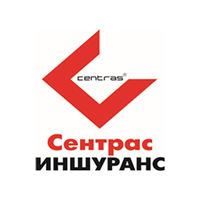
JSC "Insurance Company" Centras Insurance"

JSC "Freedom Finance"
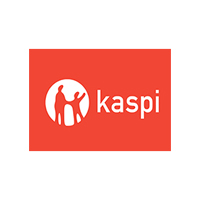
JSC "Kaspi bank"
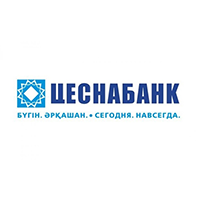
JSC "Tsesnabank"
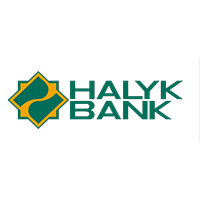
JSC "People's Bank of Kazakhstan"
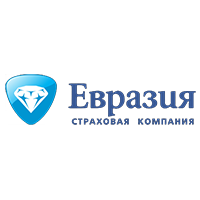
JSC "IC" Eurasia"
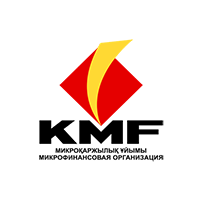
Microfinance Organization "KMF"
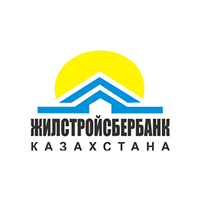
JSC "Housing Construction Savings Bank of Kazakhstan"
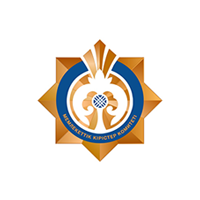
Department of State Revenues for the City of Shymkent
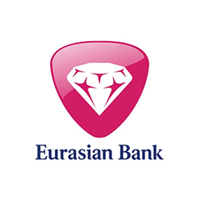
JSC "Eurasian Bank"
EMPLOYMENT
Banks
Leasing companies
Mortgage Companies
Pension funds
Pawnshops
Microcredit organizations
Insurance companies
Government bodies
CAREER & INCOME
Financial Manager — from 150 000 to 200 000 KZT
Investment or financial advisor — from 150 000 to 200 000 KZT
Financial analyst — from 210 000 to 250 000 KZT
Risk manager — from 210 000 to 250 000 KZT
Auditor — from 210 000 to 250 000 KZT
ADMISSION
On the School basis
- Documents:
UNT, ID
- Entrance tests:
Not applicable
- Training period:
3 years +Second higher education
- Documents:
Diploma, ID
- Entrance tests:
Job interview
- Training period:
Minimum 1 year 8 monthsBased on TVE (College)
- Documents:
UNT, ID
- Entrance tests:
Not applicable
- Training period:
Min: 2 years 6 months
Nuskabekov Nurbol. Year of graduation: 2011 Director of the Chess Federation of Eurasian Bank JSC, Shymkent
Kasymbekov Abilhair. Graduation year: 2016. Head of the group of sales of commodities lending JSC "Alfa-Bank", Shymkent
Auez Erkegali. Graduation year: 2017. Risk manager at ‘Forte bank’ JSC, Shymkent
Kurban Assiya. Year of graduation: 2017. Consultant at JSC ’Housing Construction Savings Bank of Kazakhstan’ Shymkent
Dzhapparova Ainur. Graduation year: 2011 Deputy Director for Corporate Lending, Tsesnabank JSC, Shymkent
Osipov Alexander. Graduation Year: 2015, Auditor, Audit Firm
Independent Kazakhstan Agency for Quality Assurance in Education - IKAQA. Certificate of specialized accreditation from January 29, 2018 to January 27, 2023; SA No. 0130/4
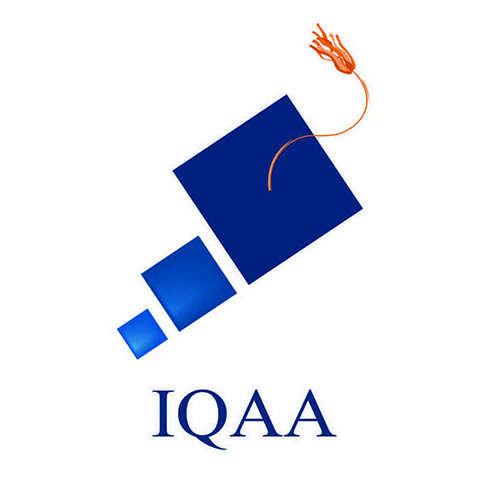
Bazarbek A., Otebekova D., Anapiya M., Baltabay A., Seyit M. Participation in the Regional Student Olympiad in Economics "Entrepreneurship - the basis of economic development" at SilkWay International University; diploma for 2nd prize, certificates
Seyit M., Orazaly A., Otebekova D., Anapiya M., Orynbaeva E. Participation in the student Olympiad in Economics "The future of the country - educated youth" at SKSU named after M. Auezova. 2nd prize, diploma
Seit M., Anapiya M., Orazaly A., Otebekova D. Participation in the student finance olympiad "A skillful financier as the source of a civilized country" at the University RSIU. 3rd prize
Seit M., Anapiya M., Orazaly A., Otebekova D., Jadigerov M. 1 prize in the student subject Olympiad in finance "Finance-Development Vector"
Seit M., Inkarov E. 2nd prize in the competition of youth start-up projects "My dream", organized by SKGI named after M. Saparbayev, 2018
Baltabay A., Kulmakhanbetova A. XI Republican competition of research works by students of colleges and universities "Science", 2nd prize
Sydyқbekova S., Abdualieva M. XI Republican competition of research works by students of colleges and universities "Science", diploma for 2nd prize
Өtebekova D., Mukhamedzhan D. XI Republican competition of research works of students of colleges and universities "Science", diploma for 2nd prize
Akmurzin A. 3rd place in the II regional competition of startup projects “My own business 2017”, diploma for 3rd prize
Typical curriculum of the educational program 6B04103 Business and Finance
Name of disciplines Cycle of disciplines ECTS Brief description of the disciplines Kazakh (Russian) Language GED 5 Issues under study: phonetic features, grammatical structure of the Kazakh language; basic vocabulary by fields of application (household, terminological, general scientific, business); methods of word formation, phraseological units; rules of translation technique; rules of spelling and punctuation; culture and traditions of Kazakhstan; rules of speech etiquette; rules of communicative behavior in situations of everyday, business, scientific and professional communication. Formed competencies: implementation of oral communication in dialogical and monological forms in situations of everyday, scientific, professional and business communication; implementation of communicative intentions in various types of written speech; maintaining contacts using e-mail; possession of communication skills in the process of official and informal contacts, in the field of everyday and professional communication; public speech skills; oral and written translation skills. Foreign Language GED 5 Issues under study: phonetic features, grammatical structure, of the English language; basic vocabulary by fields of application (household, terminological, general scientific, business); methods of word formation; rules of translation technique; rules of spelling and punctuation; rules of speech etiquette; intercultural features and rules of communicative behavior in situations of everyday, business, scientific and professional communication. Formed competencies: implementation of oral communication in dialogical and monological forms in situations of everyday, scientific, professional and business communication; implementation of communicative intentions in various types of written speech; possession of communication skills in the process of official and informal contacts, in the field of everyday and professional communication; public speech skills; oral and written translation skills. Fundamentals of Law GED 5 Issues under study: law and its place in the system of social regulation; the main forms (sources) of law; legal norms and legal relations; lawful behavior and offenses; the basics of the legal status of a person and a citizen of the Republic of Kazakhstan, the main branches of law, etc. Formed competencies: orientation in matters of current legislation; possession of skills in analyzing normative legal acts, relations regulated by law, legal analysis of information; application of legal norms in specific situations, following moral and legal norms in everyday practice; expression and justification of one's own point of view on legal issues; conducting polemics in the legal field. Physical Education GED 2 Issues under study: the discipline is focused on the consideration of the following issues: the importance of physical culture in human life; the values of physical culture and sports; factors that determine human health; the concept of a healthy lifestyle and its components; methodological foundations of physical education, the foundations of self-improvement of physical qualities and personality traits; the influence of health-improving systems of physical education on health promotion. Formed competencies: demonstration of the implementation of mandatory and individually selected complexes of physical exercises, including recreational and adaptive physical culture; maintaining a healthy lifestyle; maintaining and developing basic physical qualities in the process of physical culture; possession of means and methods of strengthening individual health, physical self-improvement, various forms of motor activity for successful socio-cultural and professional activities. Bases of Anticorruption Culture GED 5 Issues under study: the essence of corruption as a social and legal phenomenon; the manifestation of corruption in public life; the measure of moral and legal responsibility for corruption offenses; the current legislation in the field of combating corruption; prevention of offenses. Formed competencies: orientation in matters of current legislation; possession of skills of analysis of normative legal acts, relations regulated by law, legal analysis of information; application of legal norms in specific situations, following moral and legal norms in everyday practice; expression and justification of one's own point of view on issues of law and anti-corruption culture; conducting polemics in the legal field. Oratory Art BD 5 Issues under study: the main categorical apparatus of public speaking; the history of public speaking; strategies and tactics of effective speech communications; an algorithm for creating an effective public message; discussion and polemics. Formed competencies: the ability to clearly express their thoughts, feel confident during communication and speech; possession of voice and expressiveness of speech; managing the attention of listeners; the ability to answer unexpected questions, effectively convince opponents and influence listeners; knowledge of methods and techniques for analyzing the partner's speech behavior, methods of self-control. Ecology and life safety GED 5 Issues under study: the content and tasks of ecology; the concepts of the ecosystem and the biosphere; the circulation of substances and the flow of energy in ecosystems; global problems of humanity; legislative measures for nature protection; conditions for the occurrence of environmentally hazardous and emergency situations, patterns of their manifestation; classification, characteristics and forecasting of emergencies; development and implementation of measures to protect humans and the environment from negative impacts, first aid, etc. Formed competencies: assessment of the impact of environmental factors on human health; identification of the main hazards of the human environment; choice of methods of protection against hazards; possession of methods and technologies of protection in emergency situations; ability to provide first aid self-and mutual assistance; effective action in case of threat and occurrence of extreme situations and emergencies; determination of symptoms of the human body condition in case of injuries; correct use of first aid kit. Social and Political Studies Module (Sociology, Political Science, Cultural Studies, Psychology) GED 8 The main categories of political science, sociology, cultural studies and psychology; socio-ethical values of society; social, political, cultural, psychological institutions of society in the context of their role in the modernization of Kazakh society and the principles of their functioning. Formed competencies: explanation and interpretation of concepts, ideas, theories of sociology, political science, cultural studies, psychology; description, analysis of current problems of modern Kazakh society, social processes; analysis of the features of social, political, cultural, psychological institutions in the context of their role in the modernization of Kazakhstan's society; designing prospects for the development of Kazakhstan's society, solving social, political, personal problems, interpersonal and social conflicts; expressing one's own opinion on issues of social significance; generating ideas on issues of socio-political development of society and presenting them. Fundamentals of Economics and Entrepreneurship GED 5 Issues under study: The role and importance of economics in the life of society. The laws of production, exchange and distribution of material goods. Theoretical foundations of the functioning of the market economy. Fundamentals of enterprise economics. The content and essence of entrepreneurship. Types and forms of entrepreneurial activity. Formed competencies: formation of knowledge of the basic concepts in the field of entrepreneurship, regulatory documents in the field of entrepreneurship, the main mechanisms of regulation of the market economy, forms of business organization, methodology of writing a business plan in accordance with certain goals; the ability to apply basic forms and tools to determine the most effective actions, collect and analyze initial data for assessing businessideas and writing of a business plan; evaluate the commercial prospects of the project; possess the skills of drawing up the necessary documents related to the organization and reorganization of the enterprise, the skills of calculations for drawing up a business plan and assessing the risk of the company's activities in the market. Fundamentals of innovation and innovation activity GED 5 Issues under study: The essence of the concepts of ""innovation"", ""innovative activity"", ""innovative project"". Classification of innovations. Factors determining innovation activity. Sources of innovative ideas. Priorities of innovation policy at various levels of economic management. The main models of innovative development. Formed competencies: the ability to analyze and evaluate innovative projects; possess the skills of planning work on the implementation of innovations, presentation of innovative projects; carry out business planning of innovative projects.. Fundamentals of leadership and team building GED 5 Issues under study: the essence of the concepts of «leadership», «team», «team building»; leadership models and their typology; leadership styles; models of leadership decision-making, technologies of team formation. Formed competencies: analysis and evaluation of leadership styles; assessment of the conditions and consequences of the implementation of various leadership styles; methods and techniques of team formation. Fundamentals of Academic writing BD 5 Issues under study: the concepts of «academic writing», genres of academic writing (abstract, essay, review, abstract, scientific article, etc.), the basic principles of compiling and formatting academic texts and their presentation. Formed competencies: creation of written academic texts of various genres; design of a written text in accordance with accepted norms, requirements, standards; skills and abilities of compiling a bibliographic description of printed publications and electronic resources; skills of analytical work with scientific sources; editing of academic texts; critical evaluation of written works. Organization of project activities BD 5 Issues under study: Fundamentals of project activity. Design technologies. Implementation and effective project management. Methods of collecting initial data and design methods, methods of project development and implementation. Formed competencies: knowledge of methods of collecting and analyzing information; design and preparation of projects; possession of tools for organizing project activities; ability to set goals and objectives at each stage of project implementation; skills in developing ways to solve problems; practical application of design methods in professional activities. Workshop on the development of critical and creative thinking BD 5 Issues under study: the nature, structure, functions of critical and creative thinking and methods of their formation; models of critical thinking; methods of stimulating, functions, types of creative thinking; the current state of decision-making theory; conceptual support of the decision-making process; tools of critical and creative thinking necessary for decision-making; types, strategies and methods of decision-making. Formed competencies: the ability to distinguish critical and creative ways of thinking from other forms of intellectual activity; possession of methods and techniques of creative thinking; the use of various models of critical and creative thinking in practice; the implementation of a critical analysis of the situation in the decision-making process based on awareness and interpretation procedures; the formulation and reasoned defense of one's own position on various problems, as well as the correct refutation of the opponent's position. History of Kazakhstan GED 5 Issues under study: basic facts, processes and phenomena, concepts, theories, hypotheses characterizing the integrity and consistency of the integrity of the historical process; periodization of world and national history; modern versions and interpretations of the most important problems of national and world history; features of the historical path of Kazakhstan, its role in the world community. the most important methodological concepts of the historical process, their scientific and ideological basis; features of historical, historical-sociological, historical-political, historical-cultural, anthropological analysis of events, processes and phenomena of the past; historical conditionality of the formation and evolution of public institutions, systems of social interaction, norms and motives of human behavior; interrelationship and features of the history of Kazakhstan and the world, national and regional, confessional, ethnonational, local history. patterns of social development; features of development of Kazakhstan; the main historical facts and events of the socio-economic and political life of Kazakhstan at all stages of its development. Formed competencies: formation of objective historical knowledge about the main stages of the history of Kazakhstan from the ancient era to the present day, about the continuity and continuity of ethnogenesis, the formation and development of the statehood of the Kazakh people; mastering knowledge about the main stages of the development of human society from antiquity to the present day in the social, economic, political, spiritual and moral spheres with special attention to the place and role of Kazakhstan in the world-historical process; the development of the ability to analyze information contained in various sources about events and phenomena of the past and present, guided by the principle of historicism, in their dynamics, interrelation and interdependence, and the formation of historical thinking — the ability to consider events and phenomena from the point of view of their historical conditionality, to compare different versions and assessments of historical events and personalities, to correlate their views and principles with historically emerged worldview systems, to determine their own attitude to the controversial problems of the past and present. Physical Education GED 3 Issues under study: the discipline is focused on the consideration of the following issues: the importance of physical culture in human life; the values of physical culture and sports; factors that determine human health; the concept of a healthy lifestyle and its components; methodological foundations of physical education, the foundations of self-improvement of physical qualities and personality traits; the influence of health-improving systems of physical education on health promotion. Formed competencies: demonstration of the implementation of mandatory and individually selected complexes of physical exercises, including recreational and adaptive physical culture; maintaining a healthy lifestyle; maintaining and developing basic physical qualities in the process of physical culture; possession of means and methods of strengthening individual health, physical self-improvement, various forms of motor activity for successful socio-cultural and professional activities. Foreign Language GED 5 Issues under study: phonetic features, grammatical structure, of the English language; basic vocabulary by fields of application (household, terminological, general scientific, business); methods of word formation; rules of translation technique; rules of spelling and punctuation; rules of speech etiquette; intercultural features and rules of communicative behavior in situations of everyday, business, scientific and professional communication. Formed competencies: implementation of oral communication in dialogical and monological forms in situations of everyday, scientific, professional and business communication; implementation of communicative intentions in various types of written speech; possession of communication skills in the process of official and informal contacts, in the field of everyday and professional communication; public speech skills; oral and written translation skills. Kazakh (Russian) Language GED 5 Issues under study: phonetic features, grammatical structure of the Kazakh language; basic vocabulary by fields of application (household, terminological, general scientific, business); methods of word formation, phraseological units; rules of translation technique; rules of spelling and punctuation; culture and traditions of Kazakhstan; rules of speech etiquette; rules of communicative behavior in situations of everyday, business, scientific and professional communication. Formed competencies: implementation of oral communication in dialogical and monological forms in situations of everyday, scientific, professional and business communication; implementation of communicative intentions in various types of written speech; maintaining contacts using e-mail; possession of communication skills in the process of official and informal contacts, in the field of everyday and professional communication; public speech skills; oral and written translation skills. Fundamentals of Management and Marketing BD 5 Issues under study: Methodological foundations of management. The essence of marketing and its role in the economic development of the country. Communications in management and their effectiveness. Management functions. Market segmentation and product positioning. Marketing research. Product and product policy in the marketing system. Pricing policy of the company Formed competencies: the ability to plan and organize the work of the department; to form organizational management structures; to develop a motivational policy of the organization; to make effective decisions using a system of management methods. Introduction to Practice BD 2 The educational practice is aimed at obtaining primary professional skills in the field of finance, the formation of a stable interest in the profession, professional orientation. Banking and the basics of finance BD 5 Issues under study: Risk and profitability. Asset pricing models. Financial markets and instruments. Economic analysis of the structure of the financial system. Financial intermediaries. Bank management. Retail, wholesale and investment banks. Risk management and organization of the control system in the bank. Comparison of financial systems. Formed competencies: knowledge of the basic principles of the functioning of the financial services industry on the example of the banking sector; mastering the skills of complex analysis of various banking transactions and the latest banking products; mastering the skills of performing financial and settlement operations in a timely manner, developing a strategy to ensure the financial stability of the company, assessing the implementation of financial standards. Philosophy GED 5 Issues under study: categories of philosophy, philosophical understanding and understanding of the role and place of education, science, technology, technology, man, art, freedom, culture, religion in society, methods of scientific knowledge, the evolution of philosophical thought from antiquity to the present. Formed competencies: understanding and explaining the specifics of the philosophical understanding of reality; interpretation and justification of the content and specific features of the mythological, religious and scientific worldview; demonstration of methods of scientific and philosophical knowledge of the world in the implementation of project and research activities; argumentation of one's own position in relation to topical philosophical issues, global problems of modern society. Insurance BD 5 Issues under study: The nature, classification and forms of insurance. The basics of building insurance rates. Financial stability of insurers. Investment activity of insurers. Taxation in insurance. Property insurance of legal entities and individuals. Liability insurance. Formed competencies: knowledge of the skills of conducting consultations in terms of financial services and products with potential counterparties; the ability to compare the parameters of financial products, organize and conduct business negotiations. Business Application Software BD 5 Issues under study: fundamentals of construction and functioning, the essence, concept and current state of information systems, systems and resources, applied software products for business, theoretical foundations of informatization and intellectualization of the economy. Formed competencies: mastering the skills of working with software for the presentation, storage and calculation of economic data. Product Design and Development BD 5 Issues under study: The basic concepts of managing the development and implementation of a new product. Planning the management of the development and implementation of a new product. Determination of competition conditions. Perfect competition and its essence. Analysis of product attractiveness categories. Competitor analysis. Ways to get information about competitors. Consumer analysis. Forecasting market potential and sales volumes. Brand capital management. Formed competencies: knowledge of the skills of documenting decisions in the management of operational activities of organizations during the introduction of technological, product innovations or organizational changes. Physical Education GED 3 Issues under study: the discipline is focused on the consideration of the following issues: the importance of physical culture in human life; the values of physical culture and sports; factors that determine human health; the concept of a healthy lifestyle and its components; methodological foundations of physical education, the foundations of self-improvement of physical qualities and personality traits; the influence of health-improving systems of physical education on health promotion. Formed competencies: demonstration of the implementation of mandatory and individually selected complexes of physical exercises, including recreational and adaptive physical culture; maintaining a healthy lifestyle; maintaining and developing basic physical qualities in the process of physical culture; possession of means and methods of strengthening individual health, physical self-improvement, various forms of motor activity for successful socio-cultural and professional activities. Psychology of communication and conflict management BD 5 Issues under study: the essence of communication; communicative, interactive, perceptual aspects of communication; communication functions; communication structure; types of communication; communication models; verbal and non-verbal means of communication; communication levels; the social nature of conflicts; causes of conflicts; types of conflicts; dynamics and mechanisms of conflict; conflict management in the organizational system. Formed competencies: application of techniques and techniques of effective communication in professional activity; possession of methods of self-regulation of behavior in the process of interpersonal communication; knowledge of interpersonal, intercultural, interethnic and business communication techniques; identification of the causes of conflicts; management of the conflict process and their behavior in conflict; analysis of conflict situations; use of knowledge in the field of conflict management in practice to prevent and resolve conflict situations in the field of management; organization of negotiations and the use of various technologies of the negotiation process in practice. Information technologies in the field of economics and business BD 5 Issues under study: The composition, functions of information and telecommunication technologies, the possibilities of their use in the professional activity of a specialist in the field of business and management. Basic rules and methods of working with application software packages. The concepts of ""information systems"", ""information technologies"". Theoretical foundations, types and structures of databases. The possibilities of network technologies for working with information. Formed competencies: knowledge and ability to use software in the professional activity of a specialist in the field of business and management; the use of computer and telecommunications tools; skills in working with information reference systems; the use of application programs in professional activities; the ability to use the resources of local and global information networks. Technology of professional success of a specialist in the field of economics and business BD 5 Issues under study: Social functions and importance of the sphere of management and sales, value bases of professional activity of a specialist in the field of business and management. Requirements for personal and professional qualities of a specialist in the field of business and management. Regulatory documents regulating the activities of a specialist in the field of business and management. Outstanding specialists in the field of business and management. Career development trajectories, professional ethics. Formed competencies: demonstration of the ability and willingness to understand modern issues in the field of business and management, professional ethics; ability to apply the principles and rules of professional ethics and etiquette in professional activity; possession and demonstration of individual features of professional image modeling; possession of methods of professional and personal image. Fundamentals of remote analysis of a commercial bank BD 7 Issues under study: Introduction to the basics of remote analysis of commercial banks. Information support of the analysis. General requirements for the coefficients used. Balance turnover ratio. Hierarchy of coefficients. Liquidity ratios. Client coefficients. Effective interest rates: concept, sources of information, calculation methods. The index of the general imbalance of the banking system. Formed competencies: the ability to apply the studied methods and tools of remote analysis of commercial banks when choosing a counterparty bank; interpret the values of indicators obtained during the analysis of the bank's financial statements; the ability to draw reasoned conclusions and make informed decisions based on the results of the analysis. Online banking BD 7 Issues under study: Types of technology business and Internet entrepreneurship. The startup team. Idea: sources of ideas for a startup. Product concept. Business model and Value Proposition. Market analysis. Assessment of the market potential. Competitor analysis. Segmentation and target audience. Product development. Product development. Intangible assets and intellectual property protection. Technology transfer and licensing. Investment. Sources of investment. Types of investors. Formed competencies: proficiency in the analysis and assessment of banking risks in Internet banking, the choice of effective methods of exposure to risk; proficiency in the analysis of the main trends in the use of Internet banking technologies. Information and Communication Technologies GED 5 Issues under study: content and trends in the development of information and communication technologies; methods of collecting, storing and processing information, methods of implementing information and communication processes; conceptual foundations of the architecture of computer systems, operating systems and networks; architecture of computer systems and networks, the purpose and functions of the main components; concepts for the development of network and web applications, information security tools. Formed competencies: skills of using modern information and communication technologies in various fields of professional activity, scientific and practical work and other purposes; justification of the choice of the most appropriate technology for solving specific tasks; the ability to use Internet information resources, cloud and mobile services for searching, storing, processing and distributing information; ability to use software and hardware of computer systems and networks for data collection, transmission, processing and storage; analysis and justification of the choice of methods and means of information protection; ability to develop data analysis and management tools for various types of activities; implementation of project activities using modern information and communication technologies. Financial Management BD 5 Issues under study: The essence and organization of financial management in the organization. Financial planning and forecasting in the organization. The concept of the time value of money. Financial risk management. Portfolio theory and asset pricing models. Methods of evaluation of investment decisions. Management of the organization's capital structure. The company's dividend policy. Emerging competencies: the ability to apply forecasting tools, planning methods and management decision-making, to use ways to ensure coordination and control of the organization's activities; to apply the basic methods of financial management for asset valuation, working capital management, investment decisions, financing decisions. Innovation and financial Analytics BD 5 Issues under study: The concept and concepts of innovation. The concept of the national innovation system, innovation networks and clusters. Incremental, radical, breakthrough innovations. Consumer value and value. Building value for the consumer. Business model concepts. Consumer value and approaches to its formation. Innovation and building business models in the context of digitalization of the economy. Value formation and transformation of business models in the conditions of digitalization of the economy. Emerging competencies: ability to identify and implement market opportunities, possess business planning skills; analyze business processes, participate in project management, including projects for innovation, organizational changes and business process reorganization. Internet entrepreneurship BD 5 Issues under study: Technological entrepreneurship. Business model. Market analysis. Assessment of the market potential. Competitor analysis. Startup metrics and product economics. Startup finance. Monetization models. Formed competencies: the ability to evaluate and select the optimal format of an Internet project; calculate the project economy, model and design financial indicators of Internet business; possess the skills to design key performance indicators in the field of Internet entrepreneurship; assess risks and design measures to deactivate them; possess the skills to quickly launch and test product hypotheses using templates and constructors - in mobile and desktop environments, as well as analyze the customer's path and sales funnel; ability to form the strategy of an Internet enterprise and a short-term development plan. Business Finance BD 5 Issues under study: The essence and organization of business finance. Forms and contents of the company's financial statements. Cash flows in business. Fixed assets and working capital of the business. Costs and the cost of products (goods, works, services). Profit and operational risks of the business. Pricing policy of the company. Tax planning in the company. Financial planning and forecasting of business development. Financial control and controlling. Emerging competencies: ability to assess trends and patterns of development of the external and internal economic environment, its impact on the financial performance of the organization in the current and long term; ability to analyze financial risks and apply modern methods and financial instruments to reduce and neutralize them. Production practice 1 BD 5 Industrial practice 1 is aimed at obtaining professional skills in the field of finance, forming interest in the profession, allowing you to navigate the labor market and find yourself in a future profession. Interpretation practice (minor) PD 5 Issues under study: language tools in various pragmatic situations, depending on the specifics of the audience; the formation of interpretation skills based on highly specialized texts; the development and consolidation of methods and tools of translation technology; Formed competencies: the ability to choose lexical units in accordance with the knowledge of the subject of translation, to perform various translation transformations based on the use of lexical and grammatical transformations, to transmit terms of a special orientation, to highlight the technique of writing in sequential translation and ""decoding"" recorded sentences, to conduct translation activities in accordance with the place and context of translation. The main directions of modern linguistics (minor) PD 5 Issues under study: cognitive linguistics, scientific directions of linguistics, stages of the cognitive linguistics paradigm; recent achievements in the study of the science of cognitive linguistics in foreign and Russian linguistics; scientific directions in Kazakh linguistics; structural linguistics; history of the study of the science of anthropocentric linguistics. Formed competencies: to know the scope of the anthropocentric paradigm, the periods of the paradigm of cognitive linguistics, schools, representatives, the course of research; the formation of directions in Kazakh linguistics; structural, comparative-historical, anthropocentric directions in linguistics. Constitutional law of the Republic of Kazakhstan (minor) PD 5 Issues under study: the main provisions of constitutional law, legislation; the basic rights and obligations of citizens of the Republic of Kazakhstan; the structure, principles of organization and activities of state bodies (the President of the Republic of Kazakhstan, Parliament, Government, Constitutional Council, etc.), their acts; the foundations and prospects for the development of forms of direct democracy in the Republic of Kazakhstan. Formed competencies: the ability to interpret and apply constitutional legislation; the ability to make decisions and perform legal actions in strict accordance with the law; skills in applying normative legal acts; mastering the skills to implement the norms of substantive and procedural law in the professional activity of a lawyer; the ability to legally correctly qualify facts and circumstances. Geography of international tourism (minor) PD 5 Issues under study: modern research methods in the field of international tourism, factors determining the spatial development of tourism, natural and anthropogenic components that make up tourist resources, as well as prerequisites for the organization and development of tourism on the territory of tourist macro-regions and subregions of individual countries. Formed competencies: study of the basics of the formation of the main tourist flows of international tourism Basics of a healthy lifestyle (minor) PD 5 Issues under study: the basics of a healthy lifestyle, motivational-value and activity attitude to health through the expansion, systematization and personal mediation of knowledge, skills and abilities; The formed competencies are aimed at the formation and promotion of a healthy lifestyle, the use of physical culture, natural forces of nature, restoration of working capacity, ensuring active longevity. Basics of mediation (minor) PD 5 Issues under study: the main provisions of normative acts applied in the field of mediation; theoretical knowledge in the field of prevention, settlement and resolution of disputes, organization of negotiations with the participation of a neutral mediator (mediator); Emerging competencies: the ability to apply this knowledge in subsequent practical activities. Written translation experience (minor) PD 5 Issues under study: features of written translation of a foreign language; the main terminological base in the directions; the technique of translation records; the choice of adequate lexical material; the correct use of special-purpose terms. Formed competencies: the ability to choose lexical units in accordance with knowledge of the subject of translation, to perform various translation transformations based on the use of lexical and grammatical transformations, to transmit terms of a special orientation, to master the technique of writing in sequential translation and """"decoding"""" recorded sentences, to conduct translation activities in accordance with the place and context of translation. Cognitive linguistics (minor) PD 5 Issues under study: forms, goals, tasks, history of cognitive linguistics formation, its connection with other branches of science, manifestations in linguistics; scientific directions in linguistics; concept of concept, concept and conceptual structure, linguistic personality, linguistic image of the world, conceptual metaphors, cognitive phraseology, including scientific concepts about the cognitive aspect of ethnographic phraseology.Formed competencies: understanding and comprehension of the concepts of concept, meaning, as well as the structure of the concept and methods of its description; formation of the linguistic outlook of students; formation of skills of systematization of the basic concepts of science cognitive linguistics; has a modern scientific paradigm, the ability to independently acquire and use new knowledge and skills in research and practice; has the skills of socio-cultural and intercultural communication, ensuring the adequacy of social and professional contacts. Theory and history of state and law (minor) PD 5 Issues under study: the general concept of the theory and history of the state and law, their social purpose, tasks, functions and roles in historical development. Formed competencies: the ability to interpret and apply normative legal acts; the ability to analyze the role of the state and law in the life of society; the ability to explain the patterns of development of the state and law; mastering the skills to analyze the content of legal acts regulating human rights and freedoms; mastering the skills of forecasting the form of development of the modern state and law. Financial risk management PD 5 Issues under study: Tasks and risk management tools. ISO standards. Risk identification criteria, error analysis. Risk monitoring rules. Methods of risk processing. Risk map. Factors of internal and external risk context. Software. Quantitative statistical assessment. Formed competencies: the ability to develop risk impact plans, consolidate information in the register. Management Accounting IFRS PD 5 Issues under study: Basic concepts, principles and tools of modern management accounting of IFRS. Modern approaches to the classification of costs and systems for calculating the cost of products and services. Modern trends in the development of the theory and practice of management accounting. Features of the development of management accounting systems. Formed competencies: the ability to analyze accounting information for making managerial decisions, to keep records of the financial and economic activities of the organization. Financial Accounting in accordance with IFRS PD 5 Issues under study: The content of financial accounting in accordance with IFRS. Theoretical foundations of business operations in accordance with IFRS, on the basis of which indicators on the property status and financial results of the organization are formed. Financial accounting for evaluating the effectiveness of the organization. Formed competencies: the ability to keep records of financial resources and carry out calculations of profitability of production. Crisis management BD 5 Issues under study: theoretical cycles, causes and typologies of crises in the economy. Goals and objectives of anti-crisis management in finance. Extrajudicial and judicial technologies of anti-crisis management. The legal basis for conducting insolvency proceedings. Principles of achieving and maintaining financial stability. Formed competencies: proficiency in analyzing and forecasting crisis situations of companies, assessing the level of solvency; skills in developing a plan for the financial recovery of the company. Forecasting financial markets BD 5 Issues under study: Financial market and its segments. Securities market: concept, essence, place in the structure of the financial market. The main global market development trends. Types of financial intermediaries and their features in different countries. Professional activity in the securities market.Settlements on securities transactions. Clearing. Issuers and issue of equity securities. Types of investors in securities. Regulation of the financial market. Basic methods of market forecasting. Emerging competencies: ability to assess trends and patterns of development of the external and internal economic environment, its impact on the results of the organization's activities in the current and long term; ability to assess the economic and social conditions of entrepreneurial activity, identify new market opportunities and form new business models; knowledge of decision-making methods in the management of operational (production) activities of organizations. Financial supervision and monitoring BD 5 Issues under study: Financial supervision and monitoring as a type of financial control. Principles of financial supervision and monitoring. State regulation in the banking sector. State regulation in the insurance market and the securities market. Formed competencies: the ability to model business processes and use methods of business process reorganization in the practical activities of organizations; the ability to assess the economic and social conditions of entrepreneurial activity, identify new market opportunities and form new business models. Personnel audit and controlling BD 5 Issues under study: Organization as an object of audit and personnel controlling. The essence, tasks and directions of personnel audit. Controlling in the personnel management system. Basic concepts, goals and objectives of controlling. The structure of personnel controlling. Classification of management decisions in controlling. Management accounting as the basis of controlling. Formed competencies: the ability to apply methods of evaluating the effectiveness of the system of material and non-material incentives in the organization; the ability to apply the basics of personnel planning and controlling, the basics of personnel marketing, possess the skills to develop and implement a strategy for attracting personnel. Organization of financing of the company's activities PD 5 Issues under study: Sources and organizational forms of financing. Budget financing. Business incubators. Cluster financing. Features of financing small and medium-sized businesses. The concept and principles of financing. Internal financing. External (attracted) financing. Debt financing. Venture, project financing. Theories of capital structure. Optimization of the capital structure. Attracting foreign capital. Formed competencies: the ability to justify the feasibility of participating in the implementation of investment projects of interested enterprises (firms); analyze the effectiveness of investment and innovation activities, compare project options and analyze the sustainability of projects to changes in external conditions; be able to use software products to assess the effectiveness of investment and innovation projects and the investment creditworthiness of potential loan recipients. Excursion studies (minor) PD 5 Issues under study: the basics of excursion services for tourists and the local population, the preparation of an excursion route, the technological map of the excursion as a pedagogical cognitive and educational process. Formed competencies: reveals the functions and principles of the excursion, methodological techniques of storytelling and display, provides a classification of excursions and analyzes in detail their broad topics. Fundamentals of radiation safety (minor) PD 5 Issues under study: general concepts of radioactivity and dosimetry of ionizing radiation, mechanisms of interaction of ionizing radiation with biological objects, natural and man-made sources of radioactive pollution of the environment, methods of radiation control and conditions for safe work with sources of radioactive radiation. Emerging competencies: the ability to diagnose problems of nature protection, develop practical recommendations for its protection and sustainable development Psychology of creative thinking (minor) PD 5 Formed competencies: the use of psychological techniques for the development of creative thinking; skills of creative reflection in professional activity; skills of adaptation to difficult professional situations; skills of transferring experience of using creative techniques to other members of the team in the process of professional activity. Innovative translation technologies (theory and practice) (minor) PD 5 Issues under study: Formation of knowledge about modern translation technologies; formation of practical skills of working with automated translation systems; mastering modern information technologies and ways of their application in modern translation practice; formation of general cultural and professional competencies related to obtaining and processing linguistic information using information technologies; Emerging competencies: modern technologies in translation. Requirements of the modern international translation market. Translation Memory technology. Software products using Translation Memory technology. The principle of operation of the Wordfast program and its analogues. Electronic information resources of the translator. Methods of using the Internet in the translation process. Linguistic information resources. Complex application of electronic resources in translation. Ethnolinguistics (minor) PD 5 Issues under study: methodological foundations of ethnolinguistics, the conceptual apparatus of this science, its connection with other humanities; the formation of an idea of the identity of ethnic languages and the ""pictures of the world"" represented by them; language and national culture, research methods of Kazakh ethnolinguistics; the principle of consistency in Kazakh ethnolinguistics, scientific directions of cultural studies through language; country studies, linguoculturology, ethnolinguistic channels, the main factors underlying the formation of national culture, sources of national and cultural significance in the formation of Kazakh phraseology, the linguistic image of the world. Formed competencies: the ability to work with ethnolinguistic dictionaries, lexical atlases; apply the theoretical and practical knowledge gained when working with text; create original educational products within the framework of the discipline being implemented; apply knowledge of ethnolinguistics when writing works in the field of professional activity, taking into account the factor of cultural diversity. Administrative law of the Republic of Kazakhstan (minor) PD 5 Formed competencies: the ability to work with ethnolinguistic dictionaries, lexical atlases; apply the theoretical and practical knowledge gained when working with text; create original educational products within the framework of the discipline being implemented; apply knowledge of ethnolinguistics when writing works in the field of professional activity, taking into account the factor of cultural diversity. Techniques and tactics of active types of tourism (minor) PD 5 Issues under study: the concept of technology, tactics and organization of active travel in different types of tourism as one of the most promising forms of activity of tourist structures in Kazakhstan, taking into account the regional characteristics of tourist and recreational resources of Kazakhstan. Formed competencies: the ability to classify various types of active tourism; organize and conduct an active hiking trip; develop your own tourist route; Nanotechnology (minor) PD 5 Issues under study: directions of nanotechnology, a set of biological and technological methods, the study of nanoparticles, nanostructures, nanomaterials, nanoconnections and others for controlling the process of life activity of organisms that ensure normal functional life in the natural environment. Formed competencies: the ability to make a connection between the structure, composition and properties of nanomaterials, to use reference material on their structure and properties. Psychosomatics (minor) PD 5 Issues under study: psychosomatic disorders, the factors of their occurrence, psychological effects aimed at optimizing the condition of people who have them, the study of the main psychosomatic theories, types of psychosomatic disorders, about a person's attitude to the disease and the factors of its formation. Emerging competencies: the ability to predict changes within various types of professional activity and to understand the functioning of various components of the psyche in norm and pathology Corporative Finances PD 5 Issues under study: Introduction to corporate finance (genesis of the theory of corporate finance; models and standards of disclosure of corporate financial information; financial aggregates, their express diagnostics, K-analysis tools). Corporate finance as a field of knowledge: features of formation and evolution. Funding and capital structure of the company. Formed competencies: the ability to identify problems and trends in the financial system and skills to solve professional problems based on knowledge of company finance, generalization and critical analysis of current financial reporting practices. Macroeconomics in business PD 5 Issues under study: Patterns of functioning of the modern economy at the macro level. Categories and tools of economic theory. Models describing macroeconomic processes. Calculation and analysis of the modern system of indicators characterizing the company's activities at the macro level. The relationship of economic phenomena. Processes at the macro level, registration and generalization of information from the external environment. Formed competencies: the formation of a scientific economic outlook; the ability to analyze economic situations and patterns of behavior of economic entities in a market economy. Internship 2 BD 5 Production practice 2 is aimed at consolidating theoretical knowledge, working out professional skills and abilities in the conditions of real work activity. Financial planning of the company's activities PD 5 Issues under study: Financial modeling: basic concepts. Application of optimization models in solving financial management problems. Methods and models for analyzing the dynamics of financial indicators and building financial forecasts. Expert methods of analysis in the financial activities of the organization. Formed competencies: possession of a system of theoretical and practical knowledge about the essence, goals and objectives of financial planning in the financial system of organizations, about basic financial planning technologies; the ability to draw up planned and reporting financial plans, analyze budget indicators, identify deviations and causes; demonstrate skills in collecting, processing and analyzing economic and social data for drawing up financial plans; practical skills in the field of financial calculations and preparation of financial plans. Data Analytics Big Date PD 5 Issues under study: Definition of big data. Big data storage technologies. The process of analyzing big data. Big data analysis technologies. Scientific problems in the field of big data. Forecasting and foresight in socio-political and media processes. Forecasting methods. Statistical information processing programs. Presentation of the capabilities of the SPSS Statistics package for the purposes of analyzing socio-political processes. Formed competencies: formation of a system of theoretical knowledge and practical skills in the application of techniques and methods of analysis and processing of big data, effective use of data in the organization, in marketing and business; knowledge of the basics of financial accounting and reporting, as well as the principles of management accounting in order to use accounting data for managerial decision-making, the ability to assess trends and patterns of development of external and the internal economic environment, its impact on the results of the economic activity of the organization in the current and long-term perspective Administration of operating systems PD 5 Issues under study: Basic concepts of information systems administration. Functions of the information system administrator. Components of an information computing system. Network and personal operating systems. Client-server and peer-to-peer OS. OS for workgroups and enterprise scale. Configuration management services. Performance monitoring services. Error management services. Formed competencies: knowledge of the skills of commissioning new software, hardware and software. proficiency in the administration of workstations and servers running Windows operating systems. Machine learning in finance PD 5 Issues under study: Models and methods of machine learning. Development of financial data. Time series forecasting as regression tasks: autoregression, trends and seasonality, adaptive methods of working with time series. Formed competencies: knowledge about the basic models and methods of machine learning and financial data development, time series forecasting as a regression task: autoregression, trends and seasonality, adaptive methods of working with time series; the ability to apply these models and methods in which they are implemented; skills in analyzing real financial data using the studied methods. Business process modeling PD 5 Issues under study: The state and prospects of organizational management. Business process modeling methodologies. Business process models. The use of the main documents of the regulatory framework necessary for the design and solution of the task in the field of digitalization of enterprises. Formed competencies: knowledge of modeling techniques and the use of the main documents of the regulatory framework necessary for the design and solution of the task in the field of digitalization of business enterprises. Analysis, accounting and control of business results PD 5 Issues under study: Types, organization and information support. Analysis of the volume of production and sales of products (works, services). Analysis of the use of fixed assets and the organizational and technical level of production. Analysis of the efficiency of the use of material resources. Analysis of the security and efficiency of the use of labor resources. Formed competencies: the ability to monitor and analyze information about the assets and financial position of the organization, its solvency and profitability; analyze financial and economic activities; analyze information obtained during control procedures; identify and assess risks. Managing company assets PD 5 Issues under study: The economic essence and features of the functioning of assets. The essence of the asset management process. The composition and structure of the company's assets. Enterprise asset management functions. Enterprise asset management support systems. Methods of asset analysis. Management of the formation of assets of the enterprise. Management of the use of current assets. Managing the use of non-current assets. Formed competencies: the ability to justify decisions in the field of working capital management and the choice of sources of financing; the skills to develop a business plan for the creation and development of new organizations (activities, products); the ability to assess the economic and social conditions of entrepreneurial activity. Financial modeling PD 5 Issues under study: Theoretical aspects of financial modeling and ways to implement financial models. Methods of paired rank correlation in the evaluation of financial modeling results. Application of financial models to optimize the financial management of the company. Financial and economic justification of management decisions based on the experimental approbation of the financial budget model. Formed competencies: formation of a system of in-depth knowledge about the theoretical and methodological foundations of financial modeling, analytical and practical skills in the compilation and application of applied financial models, their analysis and use for making managerial financial decisions. Venture investment PD 5 Issues under study: Fundamentals of venture activity. The process of investing venture capital. Investment stage. Post-investment development of companies with venture capital. Exit strategies of venture investors. Venture investment infrastructure in Kazakhstan. Certification business game. Formed competencies: the ability to analyze the financial condition and risks of companies; to justify the effectiveness of the investment policy of the firm and financial institution, including project analysis using modern analytical tools that take into account the uncertainty factor of the business environment. Project management and Business Administration BD 7 Issues under study: Project management concepts. Administration, the main groups of project management processes (processes of initiation, planning, execution, monitoring and control, completion). Methodology of business administration. Managing the content and organization of the project. Duration of the project. Formed competencies: mastering the skills of using computer technologies for project management: Microsoft Project, Project Manager. Corporate governance BD 7 Issues under study: The concept of corporate governance and its regulation in the Republic of Kazakhstan. Mechanisms and tools. Corporate governance standards. Corporate governance bodies, the economic mechanism of corporate governance. Corporate strategies, financial reporting objects. Assessment of the economic efficiency of corporate governance. Formed competencies: formation of practical skills in using corporate governance tools, making sound financial and investment decisions in accordance with the norms of legislation. Underwriting BD 7 Issues under study: Underwriting in the insurance business. Features of underwriting in the insurance of business risks. Underwriting methods in electronic fraud risk insurance. Underwriting for export credit insurance. Methods of financial risk underwriting. The impact of pre-insurance expertise on the results of underwriting. The main stages and methods of underwriting. The system of risks in accident insurance and methods of their underwriting. Medical underwriting. Formed competencies: knowledge in the field of services provided by financial institutions, such as banks, insurance companies that guarantee payments in case of financial losses; skills in risk analysis, assessment of the client's solvency; ability to determine the probability of non-repayment of funds; skills to acquire practical skills necessary for conducting underwriting operations. Risk management in international business BD 7 Issues under study: The nature and features of risks in international business. The main methods of analysis and assessment of risks of international business activity. Practical aspects of insurance risk analysis. Insurance in international business. Leasing and factoring. Hedging. Managing currency risks of international business. Formed competencies: the ability to assess trends and patterns of development of the external and internal economic environment, its impact on the results of the financial activities of the organization in the current and long-term perspective; the ability to assess financial risks and apply modern methods and financial instruments to reduce and neutralize them. Branding BD 5 Issues under study: Basic definitions of branding. The history of branding. The process of branding formation: stages. New approaches to brand creation and promotion. The relationship between the brand and the trademark. Conditions for the acquisition of brand properties by the product. Conditions for the need for the manufacturer to develop a brand. Formed competencies: the ability to monitor feedback with different target groups using analytical, creative and innovative skills in the design, promotion and capitalization of brands, branding management. Online trading BD 5 Issues under study: Basic concepts and categories of trade. Characteristics of securities. Trading terminals. Fundamentals of technical analysis. Fundamentals of fundamental analysis. The technique of stock trading. Risk management. Emerging competencies: ability to organize the activities of the internal control and risk management service of professional stock market participants; ability to develop a program of the company's behavior on stock markets; develop risk management strategies for economic entities in the securities market. Taxes and taxation PD 5 Issues under study: The economic content of the tax. Functions of taxes. Distinctive features of the tax. Elements of taxes. Principles of taxation. Scientific classification of taxes, its significance and reasons for necessity. The bodies implementing the functions of tax control, their rights and obligations. The most important tasks of the tax authorities of the Republic of Kazakhstan in the tax process. Formed competencies: skills of accrual and transfer of basic taxes and fees for legal entities and individuals; study of the procedure for the formation of state tax policy affecting the general economic situation of the state; formation of general ideas about modern taxation; the ability to organize and carry out tax accounting and tax planning of the organization. Tax consulting PD 5 Issues under study: Basic concepts, goals, objectives, types of consulting activities. Taxes, types of tax consulting, tax burden. The main taxation systems in the Republic of Kazakhstan. Tax planning. VAT consulting. Consulting on income tax. Formed competencies: the ability to develop a policy of tax optimization of a company and a financial institution; the ability to process and interpret financial information and prepare reports for companies and financial institutions. Pre-graduate practice PD 15 Pre-graduate practice is the preparatory stage of the thesis, during which the initial research data is collected. Writing and defending a thesis / project [BiF] Additional cycle of disciplines 8